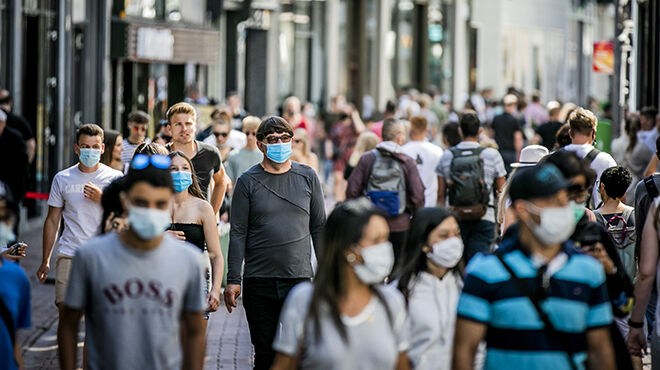The Dutch Government has announced a short, partial lockdown of three weeks, starting on Saturday, to curb the rising number of Covid-19 infections and hospitalisations.
The lockdown – announced in a press conference on Friday evening – sees the caretaker government going beyond the two week-recommendation made by the Outbreak Management Team (OMT) on Wednesday.
"The virus is everywhere and has to be fought in all places as well. To get over this difficult period, more action is needed, therefore six measures will be implemented starting tomorrow from 6:00 PM, to reduce contacts," Prime Minister Mark Rutte said.
The decision was made following the Ministerial Covid Commission (MCC) meeting this afternoon to discuss the worsening epidemiological situation in the country. The latest figures from Thursday recorded more than 16,364 new infections: the highest number of positive tests in one day since the start of the pandemic.
Rutte already announced stricter measures at the start of this month, including the expansion of the health pass to museums, cafes and restaurant terraces, and making face masks mandatory in all indoor spaces accessible to the public.
Fewer contacts, no audiences
The partial lockdown will start on Saturday and will require non-essential shops, contact professions (including hairdressers) and casinos to close at 6:00 PM. This will not apply to cultural venues including cinemas and theatres, because there is a seating system there. Meanwhile, businesses in the hospitality sector will have to close their doors between 8:00 PM and 06:00 AM.
People have been asked not to receive more than four people a day at home. "No big parties or family gatherings. Not even if all people are vaccinated."
The requirement to keep a 1.5-metre distance will once again be implemented, everywhere where the Dutch health pass does not apply, for example when walking with friends in a park.
Meanwhile, sporting events can continue but without live audiences. "This sadly means that the upcoming World Cup qualifier match between the Netherlands and Norway on Tuesday evening will be played in an empty stadium."
Related News
- Vaccinated only and lockdowns: EU countries tighten restrictions
- Belgium remains dark red on European travel map
On 3 December the government will review all these measures.
Long-term limits
Following the lockdown, the OMT also recommended tightening measures for the Dutch version of the Covid Safe Ticket (CST).
The Netherlands implements a 3G system, meaning those who are fully vaccinated, recovered from the virus or tested negative in the last 24 hours, can get a QR code for proof of entry. "We want to give entrepreneurs in certain sectors the choice between 2G and 3G," Rutte said, meaning the option of only getting tested will be removed in certain places.
"So the choice is to work with people who are tested, vaccinated or cured of the virus, or just the latter two."
The system will also be expanded so the health pass can be used in other places, including certain workplaces (where clients have to show a health pass), as well as in non-essential shops.
These measures will have to be voted on in the Lower and Upper Houses of Parliament so will take between one to two weeks to be implemented.
Covid-19 cases are also continuing to rise in Belgium with nearly 15,000 new Covid-19 cases confirmed on Monday. Although no plans for similarly restrictive measures have been suggested, politicians and health experts have said it is clear that "action is urgently needed."
However, according to biostatistician Geert Molenberghs (UHasselt/KULeuven), bearable and stable measures over the long term will be more efficient in controlling the worsening situation.
Belgium's Consultative Committee is set to meet on Friday 19 November to discuss the epidemiological situation, but Interior Affairs Minister Annelies Verlinden already stated that the authorities could also meet sooner if the situation continues to worsen.

